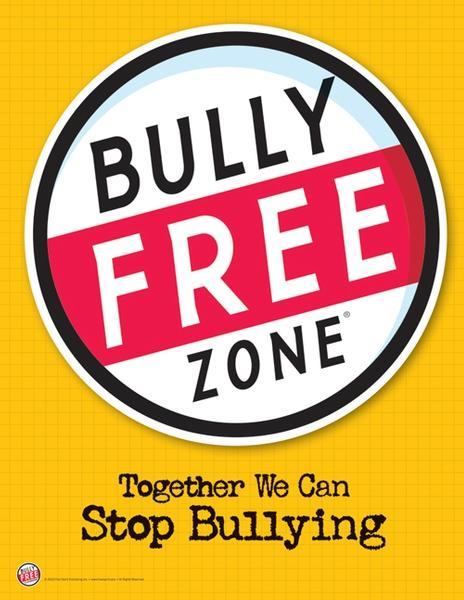Anti-Bullying Task Force

ANTI-BULLYING
Beginning with the September 2011-2012 school year, our school district / school has been conscientiously implementing the requirements found in the Anti-Bullying Bill of Rights. Gordon Parks Academy recognizes annually:
- The Week of Respect the first week of October
- School Violence Awareness Week the third week of October
- Peace Month from mid January to mid February
Gordon Parks Academy received a grade of 77 out of 78 for our efforts to address bullying (2022 - 2023).
Gordon Parks Academy staff will continue their efforts to address bullying.
Anti-Bullying Task ForceGordon Parks Academy Is A Bully Free Zone.....
So Treat Others The Way You Would Want To Be Treated!!!
As of September 1, 2011 there is now a law, the Anti-Bullying Bill of Rights Act. It’s not just bullying, but harassment and intimidation also. Because this is a state mandate, the East Orange School District has changed its Code of Conduct for students and we have a new Harassment, Intimidation and Bullying Policy.

What is Bullying?
Bullying is essentially aggressive behavior that is intentional and that involves an imbalance of power or strength. Some examples of harassment, intimidation, and bullying are:
- Name calling
- Intimidation
- Social Exclusion
- Sending insulting messages by email
Possible Signs of Bullying
- Comes home with torn, damaged, or missing pieces of clothing, books, or other belongings;
- Has unexplained cuts, bruises, and scratches;
- Has few, if any friends, with whom he or she spends time;
- Seems afraid of going to school, walking to and from school, riding the school bus, or taking part in organized activities;
- Takes a long, “illogical” route when walking to or from school;
- Has lost interest in school work or suddenly begins to do poorly in school;
- Appears sad, moody, teary, or depressed when he or she comes home;
- Complains frequently of headaches, stomachaches, or other physical ailments;
- Has trouble sleeping or has frequent bad dreams;
- Experiences a loss of appetite; or
- Appears anxious and suffers from low self-esteem.
What to do if you suspect that your child is being bullied?
If your child shows any of these signs, this does not necessarily mean that he or she is being bullied, but it is a possibility worth exploring.
- Talk with your child. Tell your child that you are concerned and that you’d like to help.
- Talk with staff at your child’s school. Call or set up an appointment to talk with your child’s teacher.
What to do if my child is bullying others?
- Make it clear to your child that you take bullying seriously and that you will not tolerate this behavior.
- Develop clear and consistent rules within your family for your children’s behavior.
- Spend more time with your child and carefully supervise and monitor his or her activities.
- Build on your child’s talents by encouraging him or her to get involved in pro-social activities.
- Share your concerns with your child’s teacher, counselor, or principal.
- If you or your child needs additional help, talk with a school counselor or mental health professional.
